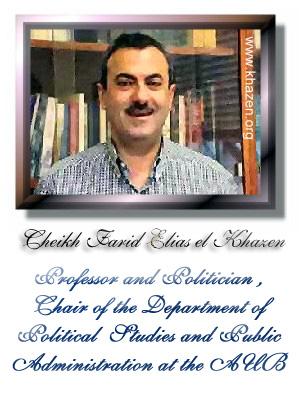 June 19 (Bloomberg) — Lebanese voters in the north of the country started voting today in the fourth and final round of parliamentary polls that will determine whether the anti-Syrian or pro-Syrian blocs control the 128-seat house.
June 19 (Bloomberg) — Lebanese voters in the north of the country started voting today in the fourth and final round of parliamentary polls that will determine whether the anti-Syrian or pro-Syrian blocs control the 128-seat house.
The vote is the first for Lebanon since Syrian troops pulled out in April after 29 years of occupation. The departure followed outrage sparked by the Feb. 14 killing of former Prime Minister Rafik Hariri, a critic of Syrian interference in Lebanon, in a car bombing in Beirut that the opposition blamed on Syria and its Lebanese allies.
The opposition coalition, led by Saad Hariri, the son of Rafik, and his anti-Syrian allies including Druze party leader Walid Jumblatt, face stiff competition in the north from Suleiman Franjieh, a pro-Syrian candidate who is fielding a list backed by former Prime Minister Michel Aoun. The two lists are competing for the last 28 seats.
 Voter turnout at today’s round was high and may exceed figures for the last election in 2000, said Cheikh Farid Elias EL Khazen, an elected legislator on Aoun’s list, and Walid Eido, an elected legislator on Hariri’s list.
Voter turnout at today’s round was high and may exceed figures for the last election in 2000, said Cheikh Farid Elias EL Khazen, an elected legislator on Aoun’s list, and Walid Eido, an elected legislator on Hariri’s list.
“Turnout was as high as 50 percent in one northern province and we expect this level to help us secure the majority of seats in parliament,” Eido, who was elected in the first round in Beirut, said in a telephone interview from the Lebanese capital.
Aoun, Hariri
Saad Hariri, a newcomer to politics, and his ally Jumblatt need to get 21 of the 28 contested seats in the north to pursue their agenda and move Lebanese policies away from Syria. In the first three rounds of voting, the pro-Syrian camp that includes Aoun, his allies and Shiite Muslim groups Hezbollah and Amal won 56 seats, compared with 44 for the Hariri-Jumblatt coalition.
“The fourth round is very heated because it will determine who will have the lead in parliament,” Cheikh Farid Elias El Khazen, who won a seat in the third round in Mount Lebanon, said in a telephone interview. He expects candidates from both lists to win seats in the north.
Christians backing Aoun, Shiites backing Hezbollah, Sunnis supporting Hariri, and members of the Druze religious sect who support Jumblatt have all gained seats in the previous three rounds of balloting.
Aoun, a Maronite Christian, beat Jumblatt in the third round of elections in Mount Lebanon and the eastern Bekaa Valley, by winning key Christian seats. The turnout in the third round was higher than in the first and second rounds.
Return From Exile
Aoun, who returned to the country in May after 15 years of exile in Paris, campaigned to get Syrian troops expelled when he was prime minister from 1988 to 1990 and during his exile. He formed an alliance with pro-Syrian candidates to win seats in parliament after falling out with Jumblatt.
In the first round, candidates backed by Saad Hariri and Jumblatt won the most seats, while in the second round, supporters of Syrian-backed groups Hezbollah and Amal won the most seats. Hezbollah, which is regarded as a resistance movement by Lebanon and Arab countries, is on the U.S. list of terrorist organizations.



